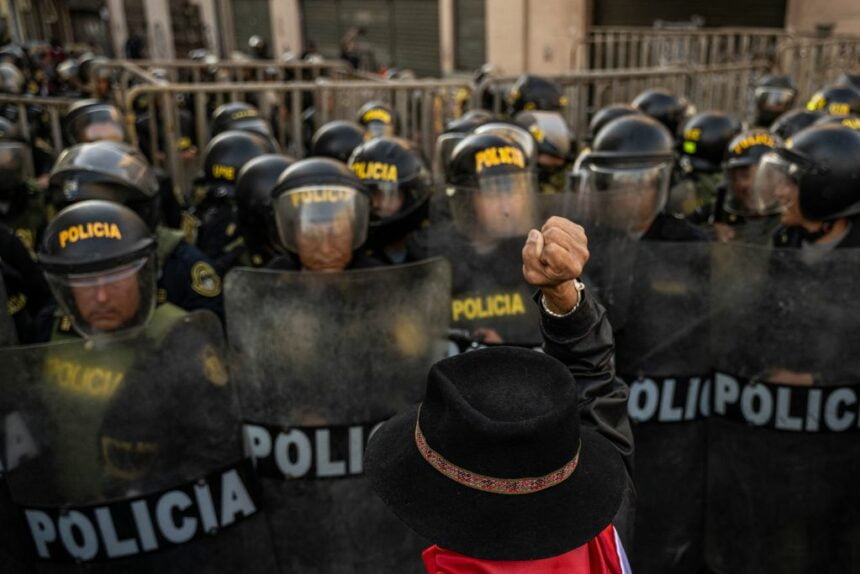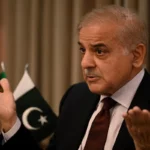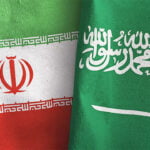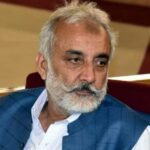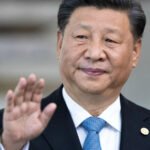Two people died on Sunday as a result of police clashes with irate protesters demanding a national strike, new elections, and the freeing of imprisoned former President Pedro Castillo during demonstrations against Peru’s new government as the South American nation’s parliament on Wednesday ousted the Marxist Castillo after he attempted to dissolve Congress and rule by decree, demonstrations have grown, especially in the northern and Andean towns.
He was immediately succeeded by Dina Boluarte, a veteran prosecutor who had been Castillo’s vice president and she unveiled her new Cabinet on Saturday; it consists of eight women and has a technocratic and autonomous profile.
She appointed Pedro Angulo, a former prosecutor, as prime minister.
There were reportedly protests on Sunday in several interior Peruvian cities, including Cajamarca, Arequipa, Huancayo, Cusco, and Puno.
Conflicts erupted in Andahuaylas in the Apurimac area when protesters tried to storm the airport of the southern city, according to authorities. Images from the scene that were carried by local TV depicted protesters firing slingshots and throwing stones while police fired tear gas in response.
A 15-year-old and an 18-year-old were killed during the conflicts, according to Eliana Revollar, director of Peru’s Ombudsman’s Office, “probably from gunshot wounds.”
According to Baltazar Lantaron, the governor of the Apurimac district, “four injuries are reported, treated at the health centre, three of them [with wounds] to the scalp, with multiple injuries.”
Hundreds of protesters also gathered outside Lima’s parliamentary building, where riot police deployed tear gas to dislodge them.
The Congress had met in an emergency session within the palace to discuss the situation, but it had to be adjourned when fights started. Social media images showed members pushing one another in the middle of the chamber and a man striking another man from behind.
The newly established Cabinet of Boluarte will convene on Sunday night to assess the turmoil and decide how to react, according to Prime Minister Pedro Angulo.
While everything was going on, organisations that promote Indigenous peoples and rural union members called for an “indefinite strike” to start on Tuesday in solidarity with Castillo, who is the son of a peasant family. In addition to Castillo’s immediate release, the Agrarian and Rural Front of Peru urged that Congress be suspended, early elections are held, and a new constitution be adopted. Nearly 90% of Peruvians, according to the latest surveys, reject the country’s legislature, prompting calls for new elections.
Background info
On Friday, chanting Pedro Castillo’s supporters gathered in downtown Lima and blocked major roadways, potentially delaying exports and supply to the capital if the blockages last.
The country’s transportation agency released a live map that showed traffic paralysed or constrained in several areas, including on a strategically significant highway that connects the capital with Callao, Peru’s largest port, as well as southern provinces where agro-industrial exports like blueberries and grapes are produced.
For a third day, demonstrators gathered close to the capitol to demand Castillo’s release from custody and to demand new elections. Some arrived after eight-hour or longer bus treks to Lima from the far-flung agricultural districts where Castillo had the most support.




